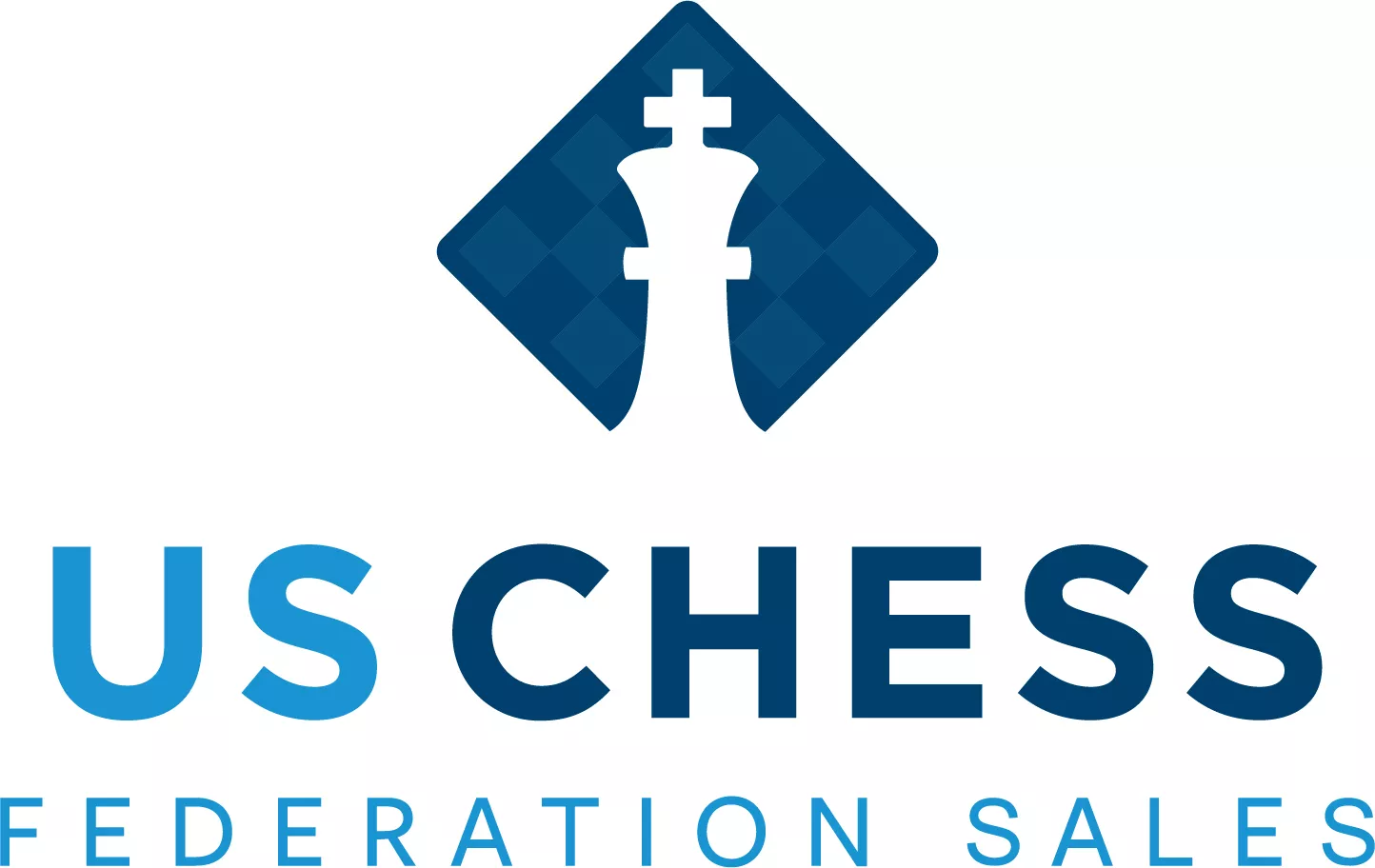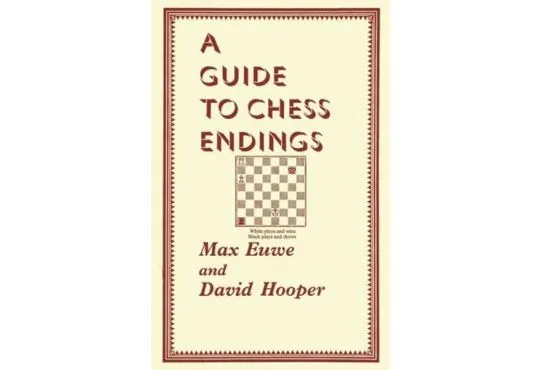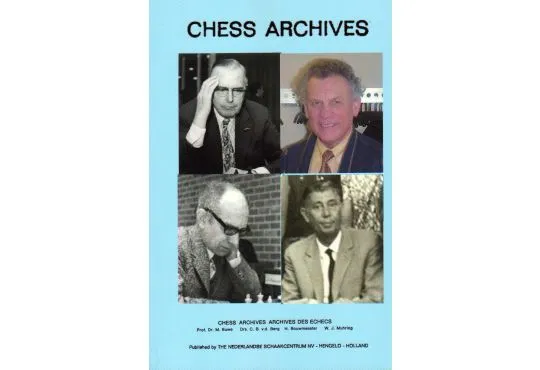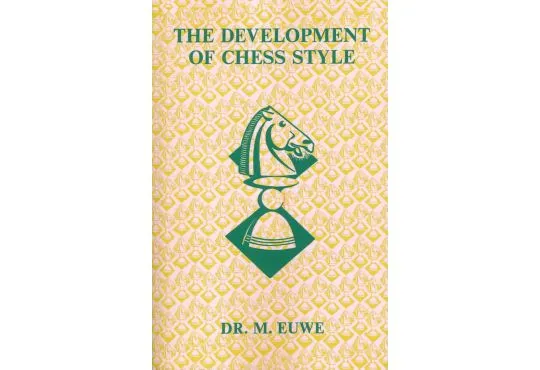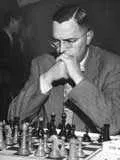Max Euwe
-
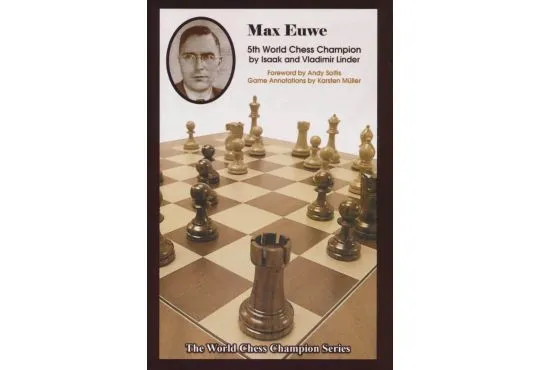 CLEARANCE - Max Euwe - Fifth World Chess ChampionSpecial Price $10.00 Regular Price $24.95
CLEARANCE - Max Euwe - Fifth World Chess ChampionSpecial Price $10.00 Regular Price $24.95
Machgielis "Max" Euwe was the fifth world champion and a mathematician. He was one of the most important figures in chess throughout the 20th Century. Euwe was born on May 20, 1901 in the town of Watergraafsmeer, Netherlands. His parents would often play games of chess while young Max observed. By the age of five he was not only playing chess, but beating his parents. In 1911 at the age of ten, Euwe played in his first junior tournament and won every game. The prodigy, Euwe, began attending the Amsterdam chess club and competing in tournaments. In 1921 at the age of 20 Euwe won the Dutch Championship and established himself as the best player in the Netherlands. He would continue to win every subsequent Dutch championship that he competed in, establishing himself as the greatest Dutch player of all time.
Euwe also had a genius for mathematics as well as chess. He studied mathematics at the University of Amsterdam and eventually earned his doctorate in 1926. Some might say Euwe was an even more brilliant mathematician than chess player. He went on to publish several papers, including a mathematical study that proved that an "infinite game" of chess was possible. While his work in the field of mathematics continued, Euwe began competing in strong international tournaments. His approach to chess was mathematical and logical and was governed by a strict set of principles. He became the foremost authority on the transition from the opening to the middlegame. Throughout the late 1920's and early 1930's Euwe, with his logical approach, would put forth some impressive results. In 1930 Euwe finished in first place at Hastings over former world champion Jose Capablanca and a strong tournament field. Euwe also played individual matches against some of the world's best players including world champions Alexander Alekhine and Jose Capablanca. While Euwe narrowly lost both matches, the experiences encouraged him and gave him the belief that he could become world champion one day.
In 1935 Max Euwe challenged world champion Alexander Alekhine for the world title. The match took place from September – December, 1935 over 13 cities throughout the Netherlands. The heavily favored world champion Alekhine came out with an early lead, but the challenger, Euwe, with home court advantage came roaring back. In the end, Euwe would pull off the upset and become the fifth world chess champion defeating Alekhine by the score of 15 ½ to 14 ½. Some attributed Alekhine's overconfidence and even his alcoholism to him losing the match. Others claimed that Euwe's superior preparation and great physical conditioning was the difference maker. Whatever the reason, the fact remains that Euwe outplayed his opponent and deservedly won the championship.
|
|
|
|
Name |
Max Euwe |
|
Country |
Netherlands |
|
Born |
May 20, 1901 |
|
Death |
November 26, 1981 |
|
Title |
Grandmaster |
|
Peak Rating |
2530 |
The Euwe vs. Alekhine rematch took place in 1937, again in Euwe's home country of Holland. The match started off as a close contest. This time Alekhine was much better prepared and had reportedly given up drinking. Euwe would eventually lose the title back to Alekhine by the decisive score of 15 ½ to 9 ½. Euwe would never again challenge for the world chess title. He continued to play in strong international tournaments well into the 1950's with some notable successes, but never regained the form he displayed in his world championship run.
In 1970 Max Euwe became the president of FIDE (The International Chess Federation) where he served for eight years until 1978. He presided as president and was instrumental in the organizing of the 1972 Bobby Fischer vs. Boris Spassky World Championship Match. His tenure as president of FIDE was during the height of Cold War tensions, and his level headed objective approach served to represent FIDE and international chess in a positive light. Max Euwe died on November 26, 1981 at the age of 80. While Max Euwe will be best remembered for defeating Alexander Alekhine to become world champion, he had an incredibly rich dual career as a scientist and chess grandmaster. He became a national hero and greatly popularized chess in his native Netherlands. He presided as president over FIDE and guided it during the 1972 Fischer vs. Spassky "match of the century". He is revered as a humble and capable world champion who was a positive figure in both the popularization of chess and the advancement of its theories.
Some Famous Max Euwe Quotes:
"Strategy requires thought, tactics require observation."
"Recent battles between different styles show that chess is not exhausted and continues to remain a lively, dynamic and eternally developing game."
On Euwe:
"He is a tactician, who has decidedly at any cost decided to make himself a good strategist…Euwe believes perhaps too implicitly in the invariability of the rules." – Alexander Alekhine
"Method rules his training, which blends the physical with the mental. How many chess masters put in, prior to an important match, an allotted time daily to bicycling and shadow boxing, followed by a cold shower and a brisk rub down?" – Hans Kmoch
